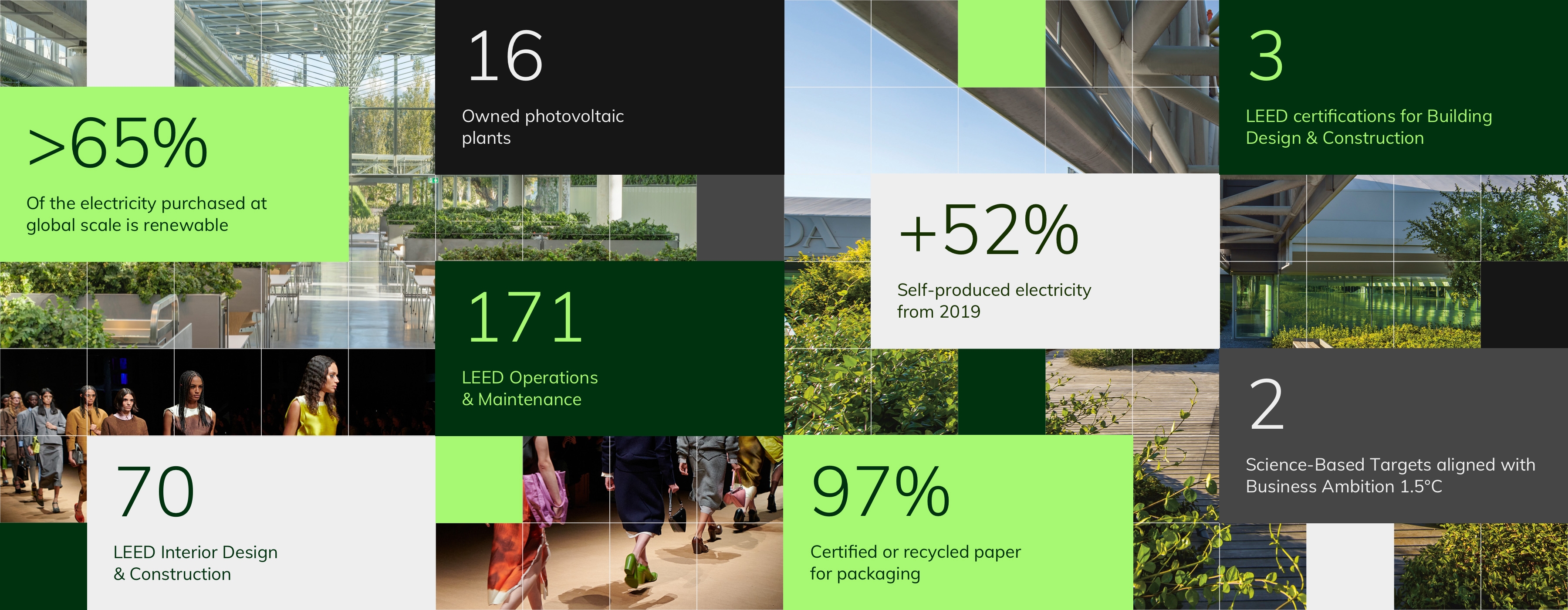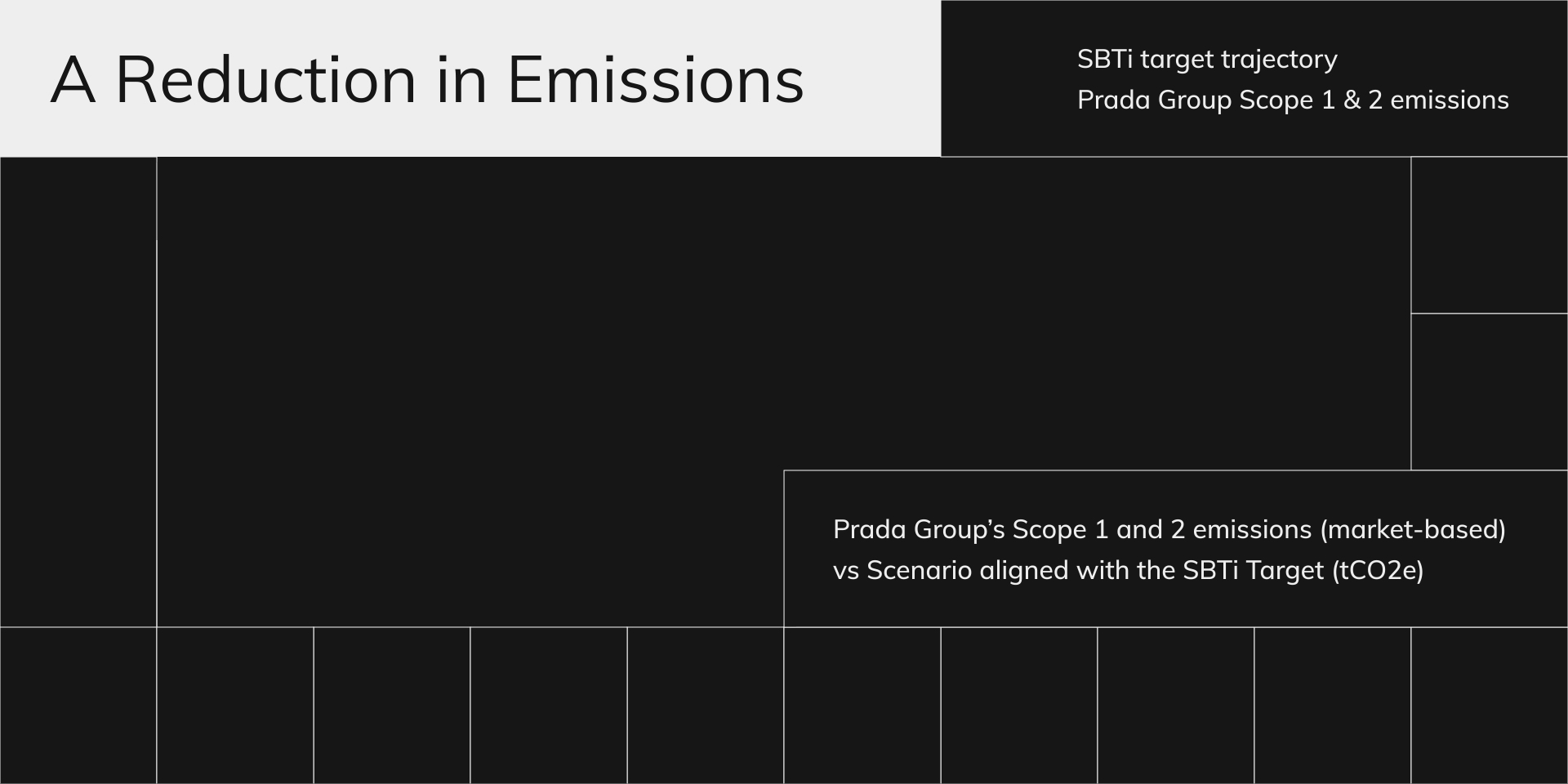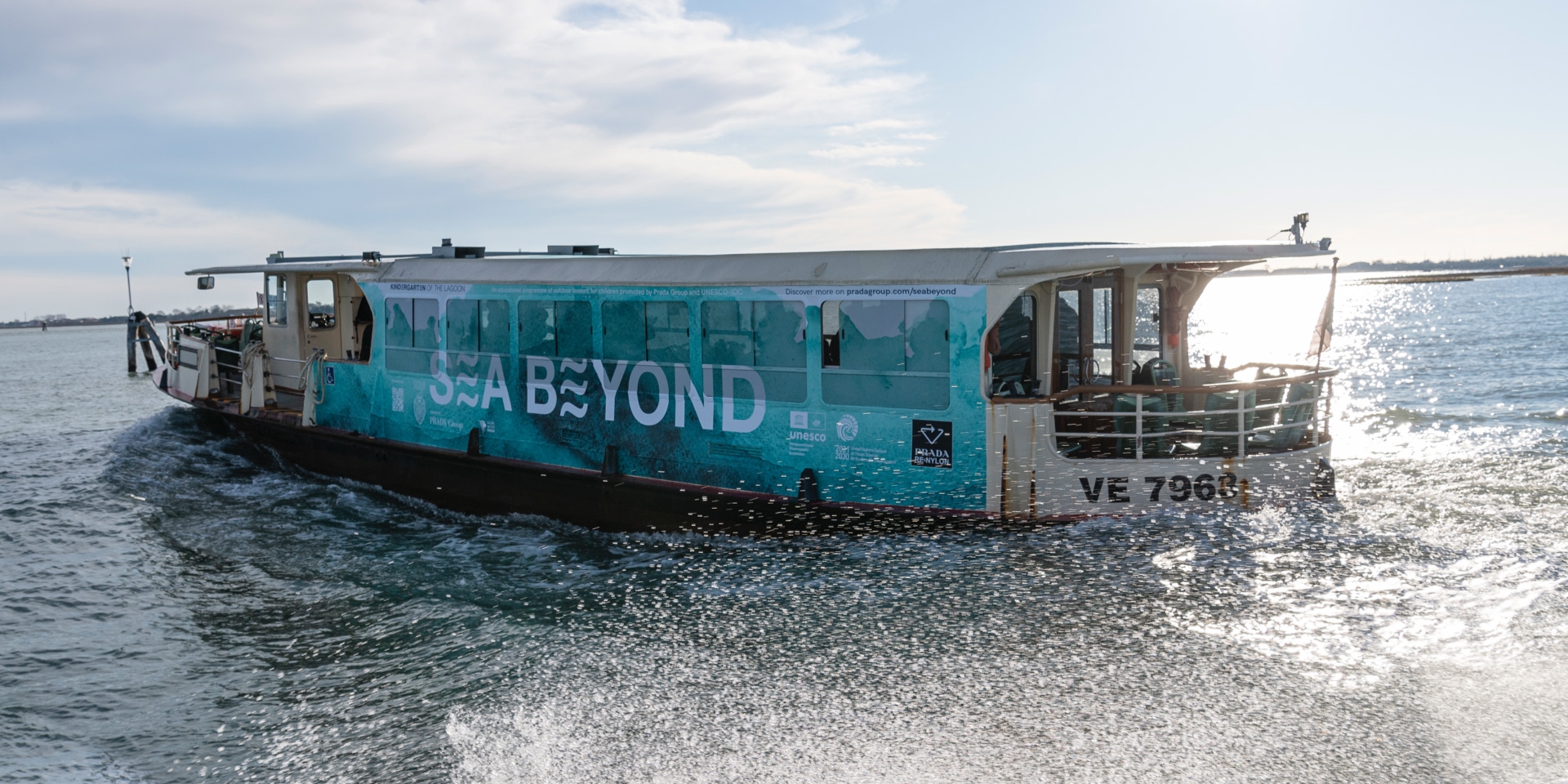Drivers of Sustainable Change
For Lorenzo Bertelli, former philosophy student and rally-car driver, and now at the helm of Prada Group’s sustainability agenda, success comes from seeing a situation from all angles. “Every perspective has some truth in it,” says the Head of Corporate Social Responsibility, “and it’s about having the flexibility to try and understand these different perspectives.”
It’s certainly a useful quality to put into practice when steering Prada Group toward ambitious sustainability goals—while remaining relevant and inspiring to its customers, and delivering value for the business and the communities it supports.
Bertelli joined the group in 2017 and was appointed to his current role in 2020.
“Prada Group’s motto is to be Drivers of Change. This vision is based on three pillars: planet, people and culture.”
— Lorenzo Bertelli, Prada Group Head of Corporate Social Responsibility
Bertelli adds: "As a luxury fashion house, we can do more and lead this change. It’s our responsibility to show that responsible behavior and a positive impact on the environment is possible.”
The Prada Group’s 2022 Sustainability Report showcases the company’s initiatives, and the market has responded positively. In Interbrand’s Best Global Brands 2022 ranking, Prada registered more than 20% year-over-year value growth for the second year in a row and ranked among the 15 fastest-growing brands.
According to Bloomberg Intelligence, “Prada’s investments in brand equity, design and innovation, its own retail stores and industrial upgrades globally are combining to drive much stronger profitable growth.”

Reducing impact
One of Bertelli’s main areas of focus has been on reducing Scope 1 and 2 emissions as part of the Prada Group Climate Strategy.
According to the UN Environment Programme, the fashion industry produces 2%–8% of global carbon emissions. Textile dyeing is the second-largest polluter of water globally, and around 2,000 gallons of water are typically needed to make a pair of jeans.
“We continue our work to reduce the impact of our operations,” says Bertelli in the company’s Sustainability Report. “Rising energy prices have proved a challenge, but they have also highlighted the importance of transitioning to a cleaner and more sustainable energy supply. We are investing in renewable energy, and participating in the Collective Virtual Power Purchase Agreement [CVPPA] project launched by The Fashion Pact that will help spur the adoption of renewable electricity by investing in new green power infrastructure in Europe.”
Prada Group has also launched initiatives to reduce energy consumption, electrify its industrial heating systems, decarbonize the company’s vehicle fleet and increase LEED Gold- and LEED Platinum-certified stores. At the end of 2022, 54% of the group’s fleet was composed of green vehicles—almost double compared to 2021—and it has 171 buildings LEED-certified for operations and maintenance, and owns 16 photovoltaic solar plants.

Thanks to the implementation of these initiatives, the group reduced its Scope 1 and 2 emissions by 34% compared to the 2019 baseline, already surpassing the Science Based Targets initiative (SBTi) target initially set to be reached in 2026.

Closing the loop
Circularity is another major focus for the Prada Group. Each year the fashion industry produces more than 100 billion apparel items, which equates to roughly 14 for every person on Earth. And every day, tens of millions of garments are tossed out to make way for new ones. Globally, less than 1% of used clothing is remade into new garments, according to the Ellen MacArthur Foundation, a U.K. nonprofit.
“The principle of circularity, or circular thinking, is perfectly aligned with the Prada Group’s climate and biodiversity strategy,” states the Sustainability Report. “It is integrated throughout the group value chain, from the growing use of recycled and regenerated raw materials to the proper management of scrap materials that can be repurposed and reused in alternative supply chains.”
Examples within Prada Group include Eternal Gold, the first truly sustainable fine jewelry collection from a luxury brand, made of 100% certified recycled gold, and Prada Re-Nylon, which from 2021 uses only regenerated nylon obtained through the recycling and purification of plastic collected from oceans, as well as textile fiber waste.
For Bertelli, one of the most exciting initiatives is the Re.Crea Consortium, a project founded in 2022 by the Prada Group, Dolce & Gabbana, Max Mara Fashion Group, Moncler Group, OTB Group and the Ermenegildo Zegna Group for the management of end-of-life textile and fashion products, and to promote research and development of innovative recycling solutions. “It could be the biggest project to prove that the fashion industry can behave in a better way,” says Bertelli.
A percentage of the sales of Prada Re-Nylon is used to support another sustainability initiative, Sea Beyond. Promoted by the Prada Group and UNESCO’s Intergovernmental Oceanographic Commission (IOC), Sea Beyond is an educational program that raises awareness of sustainability and ocean preservation. In September 2022, Sea Beyond received the Oceans Award at the Sustainable Fashion Awards 2022, organized by Camera Nazionale della Moda Italiana (CNMI) in collaboration with the United Nations Ethical Fashion Initiative (EFI).

“It is a long-term commitment to educate young generations about the preservation of the sea. We would like to create a platform that is open to other partners who can help us spread ocean literacy principles; we need cohesion and continuity to promote sustainability and ocean-literacy principles,” says Bertelli.
At the end of 2022, the Prada Group announced its commitment to biodiversity, including supporting Forestami—the award-winning urban forestation project promoted by the Municipality of Milan. The goal of the project is to plant 3 million trees in and around Milan by 2030.
Educating for change
The Prada Group has also formed the Forestami Academy, a three-year training program for Milan citizens comprising workshops, seminars and outdoor activities focused on urban forestry.
“The only way to improve our current environmental situation is through education—particularly for future generations, to empower them with better tools to understand the culture in which they live, and also to understand the perspective of the older generation. What is missing today is a dialogue between the old and the new generations,” says Bertelli.

With this in mind, the Prada Group Academy, founded in the early 2000s, continues to train future generations of craftspeople. It aims to train 200 new professionals by the end of this year—part of a major hiring plan to integrate 400 new jobs to preserve the sector’s know-how and increase production capacity.
“I think the values of our company are in line with the evolutions of contemporary society,” says Bertelli. “My parents [Prada Group majority owners Miuccia Prada and Patrizio Bertelli] have always put passion at the core of their daily work. If we continue with the same approach—listening to our people and being curious—the results will continue to be positive.”
